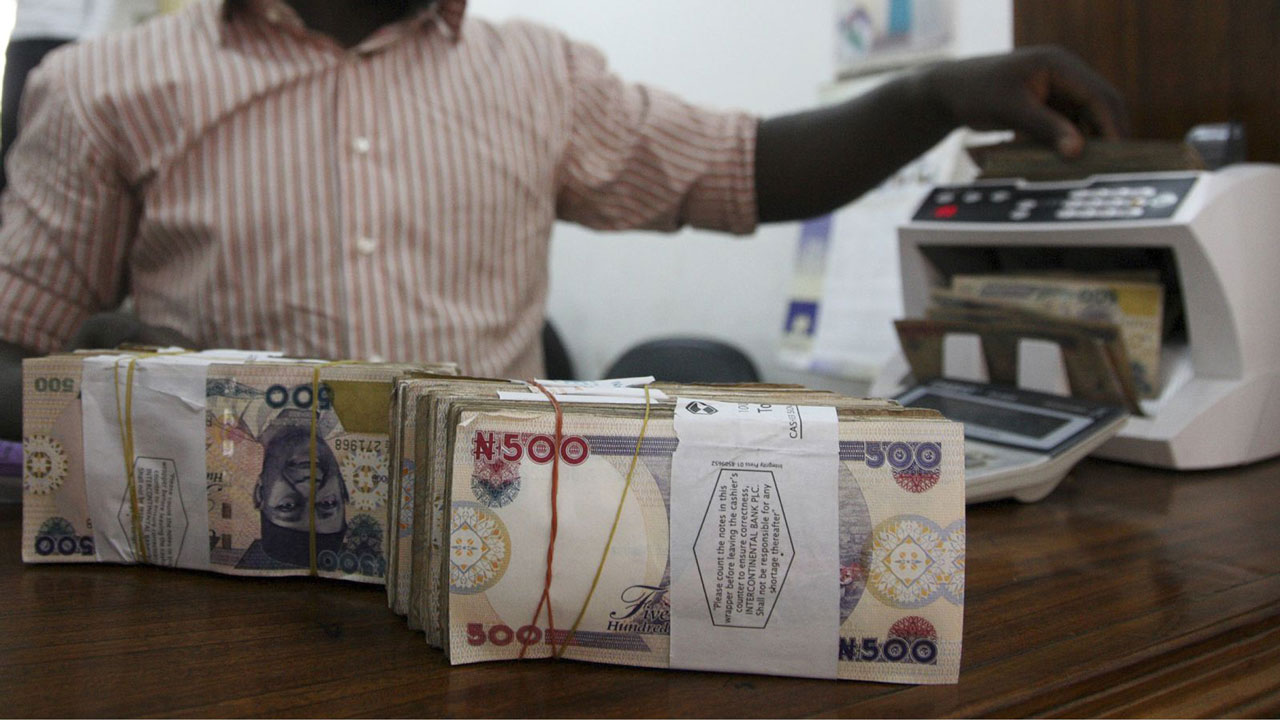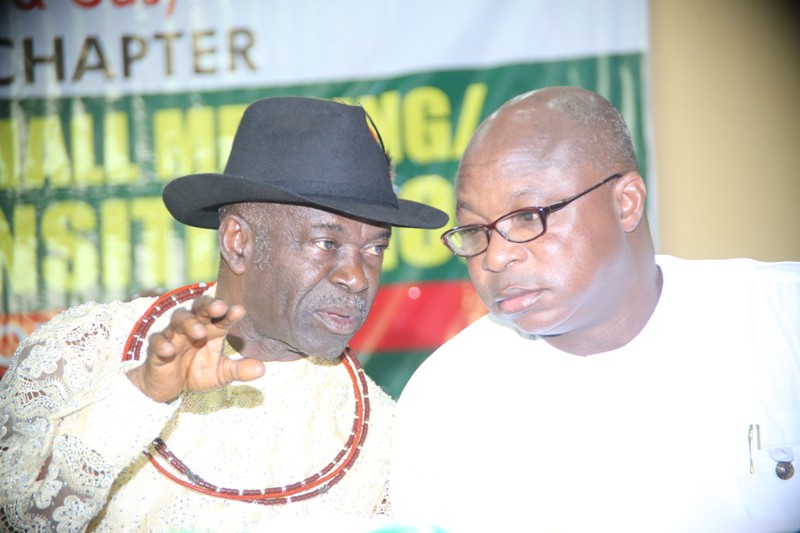The published recommendation of the Nigerian as this newspaper’s Person of the Year 2017 was illustrated with typical real-life photographs and a caricature of a gaunt and starved, ragged and sweat-dripping beggar holding out an empty bowl for alms while sitting on a barrel of crude oil which he owns. The Nigerian epitomises the end product of long-term application of fiscal and monetary policies that are inconsistent with global economic best practice after the collapse in 1971 of the Bretton Woods system of fixed exchange rates. As a result, the Nigerian economy not only bears opposite features to what should ordinarily occur but also renders ineffectual use of conventional counter-measures against such features.
Ahead of the January 2018 meeting of the CBN Monetary Policy Committee, the Communique of its November 2017 meeting offers a few relevant examples. The World Bank, in its global economic outlook for the first 10 months of 2017, projected that the group of emerging markets and developing economies to which Nigeria belongs, was expected to record an average of 4.6 per cent growth rate and 4.2 per cent inflation with “global monetary policy remaining largely accommodative in support of economic recovery and growth.” By comparison, however, Nigeria returned very unfavourable indicators of 0.43 per cent real GDP growth by September and inflation of 15.9 per cent in October under a tight (that is non-accommodative) monetary policy stance characterised by double digit monetary policy rate (MPR). The expected outcome of high MPR, which did not materialise, includes reduction of inflation (which instead soared to four times the desired level), increased capital inflows (which remained meagre and flighty) and stable exchange rate (which has proved to be a mirage).
As indicated, the cause of the highly differing outcome is known. Ordinarily achieved GDP growth rates and claimed levels of actual federal fiscal deficits which, even in addition to deficit spending incurred by the states, do fall within the safe limit of 3 per cent of GDP, should keep inflation expectation within 0-3 per cent range. However, the fiscal deficit ceiling has been routinely breached: FAAC dollar allocations are withheld by the apex bank and replaced with purported naira equivalent furnished by the CBN. That procedure represents deficit financing by CBN. For instance, the volume of FAAC allocations made up of substituted CBN funds amounted to N2.3 trillion in 2016 or extra fiscal deficit of 2.3 per cent of GDP. For January-September 2017, the substituted CBN deficit funds total N2.4 trillion representing extra fiscal deficit of 2.9 per cent of 2017 GDP (first three quarters). Note that the extra fiscal deficit level arose because FAAC oil export proceeds were not converted to naira funds in accordance with global economic best practice of exchanging any foreign earnings for local currency.
The impact of the combined actual and extra fiscal deficits includes, firstly, bloated money supply volume which is technically known as excess liquidity. But as counter measures, the CBN directs the Debt Management Office to withdraw part of the excess funds from circulation with treasury bills (TBs) at profligate interest rates thereby accumulating the national domestic debt (NDD) whereas best practice requires the apex bank to (a) get rid of such excess funds by fiat at 0.1 per cent interest cost or less; (b) deploy TBs only to raise short-term funds for necessary budgetary spending. Thus the NDD in its present content of impliedly sterilised and destroyed nuisance pile does not represent genuine debt and should be replaced. Hence, any budgetary provision earmarked for its service and periodic redemption should be used to fund capital projects. There is no alternative option and more so in light of IMF caution last November that the country’s (i) debt servicing costs could absorb 60 per cent of government revenue in 2017; and (ii) plan to refinance the NDD with external borrowing posed exchange rate risks.
Secondly, being redundant, the CBN-created extra fiscal deficit is the major contributory factor to high inflation rather than structural constraints being diversionarily blamed by the apex bank and the MPC. The earlier noted CBN’s futile anti-inflation tool, tight monetary policy stance, gives rise to unattractive lending rates which lead to low utilisation of bank credit capacity, reduced investment, high unemployment, non-inclusive and constricted economic growth. Thirdly, the extra fiscal deficit also accounts for the persistently sliding naira exchange rate. The CBN deliberately misleads the public and even Federation Account beneficiaries with the occasional “exchange gain difference” column contained in FAAC allocations. Contrarily, that column actually testifies naira depreciation (exchange rate loss) in relation to the set Appropriation Act naira exchange rate. Exchange rate loss hurts the economy and pauperises the people who suffer lowered GDP per capita vis-à-vis other countries.
But behold grand hypocrisy! Although they exhort the private sector to produce additionally for export in recognition of the axiom that export earnings (irrespective of their source) boost the economy, successive federal administrations have insistently applied the wrong procedures which make public sector oil export earnings to beget the economy-hobbling factors illustrated above. It stands to reason that the economy-wrecking procedures should be jettisoned. Therefore, the Federal Government, in tune with best practice, should normailse its fiscal and monetary policies by operating a Single Forex Market (SFM) anchored on the dirty (managed) exchange rate fixing system.
On the other hand, the CBN in April introduced the importers and exporters (I&E) forex window for restricted participants as the way forward. A little scrutiny? According to the MPC communique of November, from April through November, transaction volume via the I&E was over US$18.7 billion. Based on the mean I&E exchange rate of N350/$1, the naira volume was N6.5 trillion. However, had the Appropriation Act exchange rate (AAR) of N305/$1 applied, the naira amount would have been N5.7 trillion. The difference between the I&E and AAR volumes is N800 billion. By deducting FAAC total “exchange gain difference” of N103.3 billion shared on two occasions between April and November, there remains an outstanding difference balance of N696.7 billion.
Now, the SFM is simply “all importers and all exporters” marketplace operated via deposit money banks that should earn commission on brokered transactions. Open participation of the country’s biggest exporters (such as Federation Account beneficiaries and recipients of remittances from the Diaspora by collective weight) in the I&E would practically bring about the SFM. That development would lead to (i) the crash of the dollar rate and corresponding strengthening of the naira to the AAR and even firmer level; (ii) the simultaneous burying of the baneful substitution of CBN deficit funding of public sector oil earnings; (iii) concrete establishment that the economy can generate more forex than it requires for sustainable rapid development; and (iv) disappearance of other forex segments owing to lack of patronage with the exception of bureaux de change that would carry out traditional small-scale transactions based on the SFM exchange rate plus an approved spread.
Note that the 41 items barred by CBN from the AAR segment have continued to access forex through other segments. Upon the SFM’s emergence, the 41 items should be slammed with varying levels of forex access tax (FAT) for the sake of national planning goals and exercise of sovereign right to (a) set the naira exchange rate under the managed float system; (b) accrete external reserves; and (c) impose tax for the purpose of generating public revenue. But as things stand, through the restricted I&E alone, the CBN (aa) incurs punishable breach of the CBN Act and 2017 Appropriation Act both of which prescribe single exchange rate; (bb) ultra vires orchestrates 13 percent devaluation of the naira relative to the AAR, which should attract appropriate sanctions; (cc) unpatriotically leaves the revenue-strapped FG in the lurch but in just eight months passes the above outstanding N696.7 billion to (i) the banks which the apex bank against best practice has vested with the sinecure of forex dealership; (ii) foreign fortune hunters who are enabled to unfairly buy out domestic firms cheaply and repatriate unearned profit via the AAR segment; and (iii) other sundry interlopers. The CBN treats the country like its conquered territory and carries out the economic rape at the sacrifice of competitiveness of locally produced goods and services. It is unacceptable.
It is clear that the public and government have long been made aware of the solution to the country’s agelong and worsening economic problems. The derivable benefits from the identified solution are the same as the long-yearned-for national development objectives. The Federal Government should therefore end the travail of the Nigerian by normalising the economy now. -Vanguard




